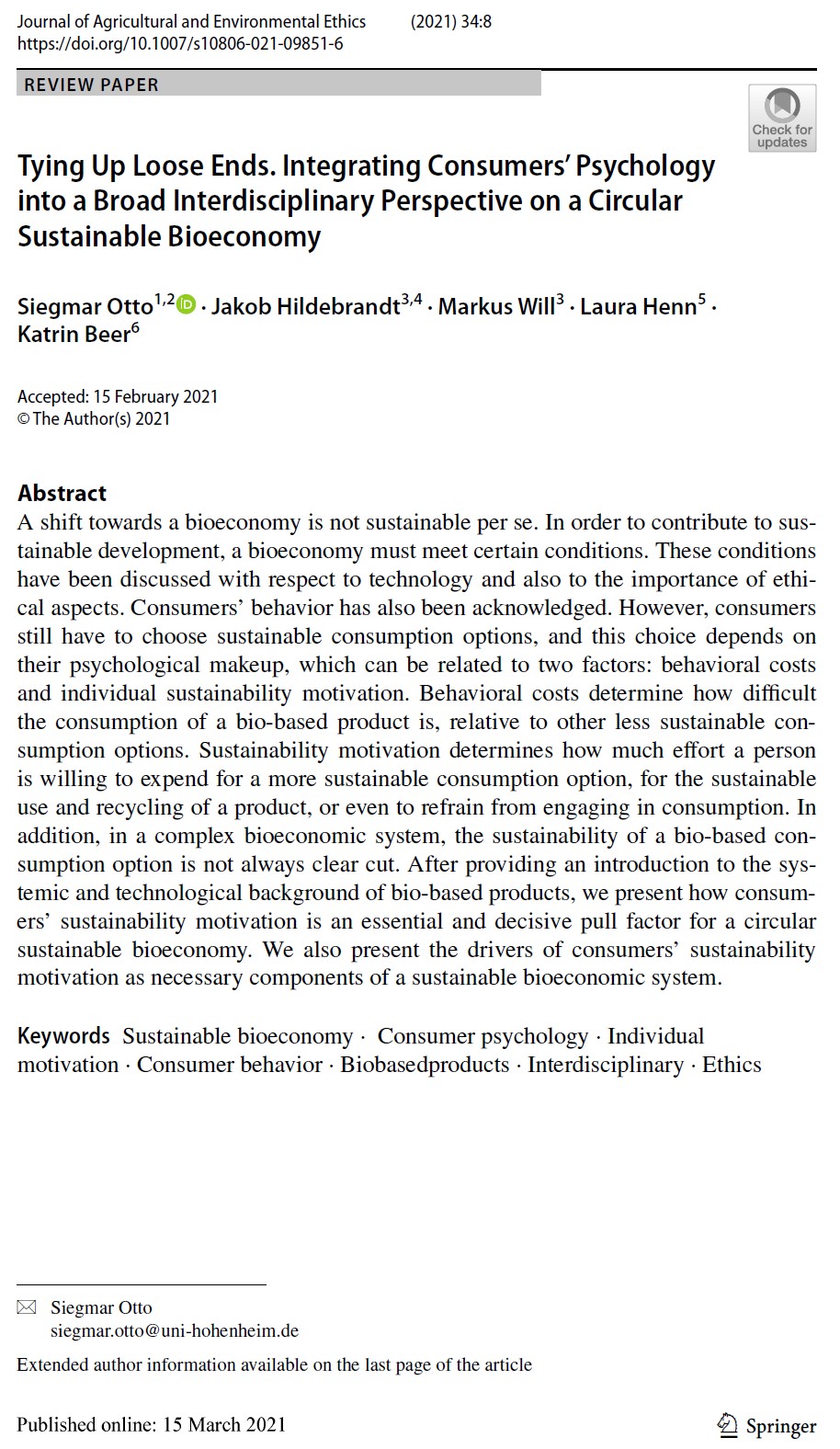A shift towards a bioeconomy is not sustainable per se. In order to contribute to sustainable development, a bioeconomy must meet certain conditions. These conditions have been discussed with respect to technology and also to the importance of ethical aspects. Consumers’ behavior has also been acknowledged. However, consumers still have to choose sustainable consumption options, and this choice depends on their psychological makeup, which can be related to two factors: behavioral costs and individual sustainability motivation. Behavioral costs determine how difficult the consumption of a bio-based product is, relative to other less sustainable consumption options. Sustainability motivation determines how much effort a person is willing to expend for a more sustainable consumption option, for the sustainable use and recycling of a product, or even to refrain from engaging in consumption. In addition, in a complex bioeconomic system, the sustainability of a bio-based consumption option is not always clear cut. After providing an introduction to the systemic and technological background of bio-based products, we present how consumers’ sustainability motivation is an essential and decisive pull factor for a circular sustainable bioeconomy. We also present the drivers of consumers’ sustainability motivation as necessary components of a sustainable bioeconomic system.

